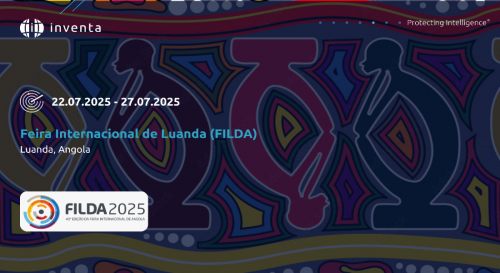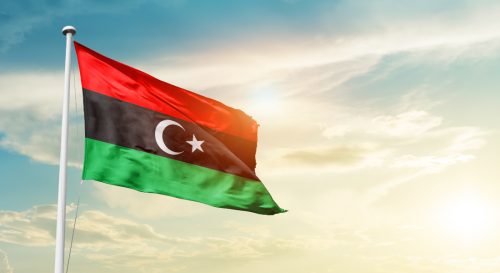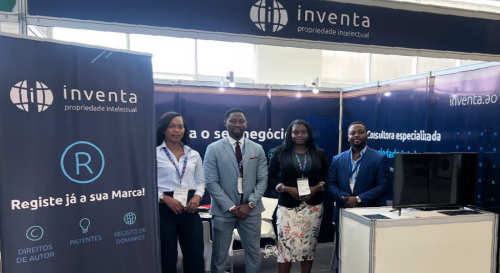
TotalPollution vs. Rugby World Cup: Trademark Trouble?
With just over a week to go until the start of the Rugby World Cup in France, Greenpeace has launched the "TotalPollution: A Dirty Game" campaign, which aims to criticize TotalEnergies' sponsorship of the tournament, stating that this support "is aimed at greenwashing its climate-destroying activities" on the part of TotalEnergies.
The video released for the campaign is a clear reference to the opening match of the tournament to be held on September 8 between the host team (France) and New Zealand. In this video a flood of oil rises from a TotalEnergies advertising banner, submerging the field and the stands and overflowing the stadium, in order to convey Greenpeace's claim that "the fossil fuel industry produces a stadium full of oil every 3 hours and 37 minutes".
In the video we can see, the word and device trademark "Rugby World Cup France 2023", owned by Rugby World Cup Limited (RWCL) as the entity responsible for organizing the Rugby World Cup.
According to The Drum, a legal representative of RWCL has sent a letter to Greenpeace with the following content: “your use of RWCL's intellectual property has not been authorized by RWCL and/or the commercial partner or the other partner members and therefore infringes RWCL's intellectual property rights" and "to avoid the need for formal legal proceedings" they should "cease and desist immediately" by removing the video, and "refrain from any further such use in the future".
According to ECO, Greenpeace considers that there is no misuse of the trademark or violation of RWCL's rights, having replied that the European trademark law allows the use of a registered trademark by third parties, as long as it is not for the purpose of trading goods or services.
From the point of view of Industrial Property Law, since it is clear that we are dealing with a case of use of a trademark by an unauthorized third party, the question arises as to whether this unauthorized use is justified by the fact that there is no commercial use on the part of the alleged infringer, as argued by this NGO.
In fact, Article 10 (2) of Directive (EU) 2015/2436, aims to harmonize the laws of the Member States relating to trademarks, states: “Without prejudice to the rights of proprietors acquired before the filing date or the priority date of the registered trade mark, the proprietor of that registered trade mark shall be entitled to prevent all third parties not having his consent from using in the course of trade, in relation to goods or services, any sign where:”.
There is, therefore, a clear mention of "using in the course of trade", which certainly means commercial exploitation, and since Greenpeace is a non-profit organization, it can take advantage of this exception to continue the "TotalPollution: A Dirty Game" campaign.
The owner of a trademark can prevent others from using it to avoid confusion about the origin of the goods or services. However, in some circumstances, a third party can use the trademark if the use is considered to be a "fair use".
The mention of use in the course of trade in the aforementioned article could imply a recognition for this "fair use" exception, since it allows the unauthorized use of a trademark, as long as it does not involve its use in the trading of goods and/or services.
However, this argument may not be sufficient to justify Greenpeace's action, since generally the concept of "fair use" for non-commercial use is related to academic articles, media reports, and other similar forms of content.
Once Greenpeace is an NGO that depends on donations and external funding, raises the question of whether this campaign will contribute to a continuation or increase in donations from organizations that are sensitive to this cause, which could challenge the argument of non-commercial use.
Although, according to The Drum, a representative of the RWCL has stated that the RWCL does not intend to take legal action in this particular case, it would certainly be an interesting case to clarify the concept of "fair use" and the use in the course of trade of trademarks in Europe.
Currency Info
Final charges will be made in USD.
Currency conversion is for information purposes only and accuracy is not guaranteed. Overseas customers are encouraged to contact their bank or credit card provider for details on any additional fees these institutions may include for currency conversion.
Territory List
There are no results for your search.
- Africa
- Algeria
- Angola
- Benin
- Botswana
- Burkina Faso
- Burundi
- Cameroon
- Cape Verde
- Central African Republic
- Chad
- Comoros
- Congo (Republic)
- Côte d'Ivoire
- Democratic Republic of the Congo
- Djibouti
- Egypt
- Equatorial Guinea
- Eritrea
- Eswatini (Swaziland)
- Ethiopia
- Gabon
- Gambia
- Ghana
- Guinea
- Guinea-Bissau
- Kenya
- Lesotho
- Liberia
- Libya
- Madagascar
- Malawi
- Mali
- Mauritania
- Mauritius
- Mayotte
- Morocco
- Mozambique
- Namibia
- Niger
- Nigeria
- Réunion
- Rwanda
- Sao Tome and Principe
- Senegal
- Seychelles
- Sierra Leone
- Somalia
- South Africa
- South Sudan
- Sudan
- Tanzania (mainland)
- Togo
- Tunisia
- Uganda
- Western Sahara
- Zambia
- Zanzibar
- Zimbabwe
- Africa (OAPI)
- Africa (ARIPO)
- Other
- East Timor
- Macao
- Maldives
- Portugal
- European Patent (EPO)
- European Union Trademark (EUTM)
- International Trademark (Madrid System)
- Patent Cooperation Treaty (PCT)




